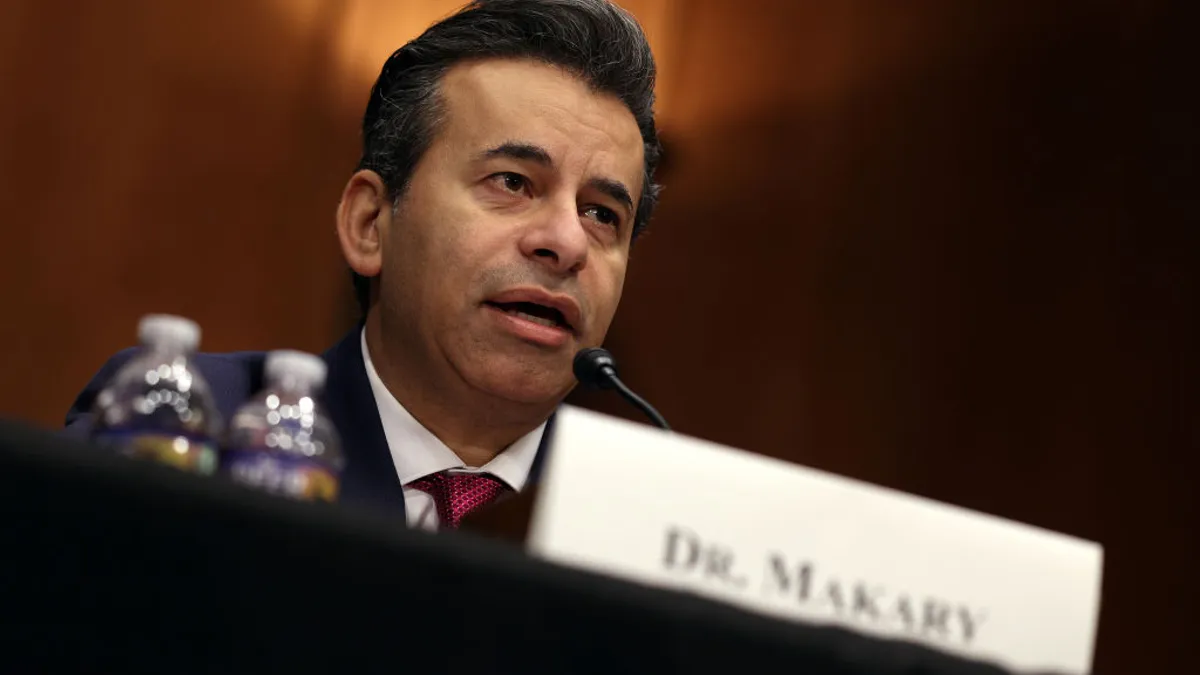Having weathered 18 months of COVID-19, industry hopes for a post-pandemic recovery are being impeded by three major challenges: supply chain, inflation and healthcare staffing shortages.
"One of the things that's giving a lot of medtech investors pause right is now is just a sheer number of macro issues to think through," from healthcare staffing to supply chain to inflation, Bob Hopkins, an analyst at Bank of America, noted on Boston Scientific's earnings call.
Hopkins observed those hurdles come before analysts "even start to look at company fundamentals,” while adding that all of these dynamic market conditions are "making it hard for investors to know how to think about modeling for the next 12 months."
Companies throughout the sector have cited the factors in holding back growth.
NuVasive and Zimmer Biomet warned investors about the headwinds created by hospital staffing shortages in September, foreshadowing its emergence as a key theme of the current medtech earnings season. Johnson & Johnson, one of the first companies to report results, identified "reduced medical staffing" as a factor that is "constraining procedure volumes."
The constraints on procedure volumes are slowing growth. Stryker cited healthcare staffing when it cut its full-year growth target last week, reflecting the effect the situation is having on its implant business.
"This primarily impacted our implant-related businesses including hips, knees and spine, which can be, in many cases, deferred for a period of time. However, the disease states that we treat are degenerative and the patients that defer their procedures will eventually return to have those procedures completed,” Preston Wells, vice president of investor relations at Stryker, told investors.
The big question is how long it will take hospitals to get the situation under control and work through the backlog of deferred cases. Wells, while noting some improvements in October, said Stryker expects the recovery will be "partially muted" by continued hospital staffing challenges.
Boston Scientific CEO Mike Mahoney acknowledged that staff shortages will persist but contends hospitals will be able to work through them, arguing that changes like using telehealth to pre-screen patients and utilizing outpatient centers can help. "Hospitals — just like anybody else — they innovate and they find a way," Mahoney told investors. "I think the surges will calm and the staffing shortage will likely linger a bit, but hospitals are pretty resilient in figuring out ways to drive volume."
Semiconductor shortage stretches supply chains
Hospitals are contending with staffing shortages while simultaneously dealing with supply chain issues. Intuitive Surgical CFO Marshall Mohr told investors the twin problems "are challenging some hospital capacities and could impact deferrable procedures, including da Vinci procedures, going forward."
Mohr singled out semiconductors, the shortage of which is affecting everything from automobiles to consumer electronics, as a particular supply chain problem. "While to date we've been able to secure supply necessary to ensure fulfillment of customer demand, our teams are expending significant time and effort to bridge future supply with demand. Global shortages could result in future supply disruptions as well as delayed development and regulatory activities," Mohr warned.
The semiconductor shortage is already affecting sales at some companies. Back in August, ResMed flagged the shortage of semiconductors as a constraint on its attempt to ramp up supply to meet extra demand created by the recall of rival Philips' devices. ResMed CEO Mick Farrell reiterated the situation last week.
"We are facing the challenge of providing the volume for our own No.1 market share position and also trying to meet as much of their No. 2 market share position as possible around the world," Farrell said. "Supply bottlenecks continue to restrict our access to critical electronic components, especially semiconductor chips, that ultimately limit our net production output.”
The situation is exacerbated by air and sea freight problems that make the "steady and smooth flow of products to the market very difficult," Farrell added.
The challenges extend beyond semiconductors — Stryker flagged up resins as another in-demand raw material — and are affecting companies without the unique pressures and opportunities facing ResMed.
Sales at GE Healthcare fell 6% organically in the third quarter because of ongoing shortages that hit life sciences harder than any of the other industries targeted by the conglomerate. GE CEO Larry Culp said the supply chain challenges are the worst he has seen, adding that the healthcare unit continues to proactively manage sourcing and logistics. "It really is akin to playing Whac-A-Mole," Culp said. GE expects the supply disruptions to continue until at least the midpoint of next year.
Inflation drives up costs
The supply shortages are intertwined with the third macro problem facing the medtech industry, as Abbott CFO Bob Funck told investors during the company's earnings call.
"I think inflation and supply chain are really linked together. The global supply chain has not been able to keep up with strong demand out there. So, like others, we're seeing some increased input costs across areas of our business. We're experiencing some higher shipping costs and, in some cases, higher commodity costs," Funck said.
Echoes of Funck's comment were heard across medtech earnings season. Intuitive's Mohr noted rises in the prices of components and freight expedition, adding that he expects "supply issues to result in higher production costs."
Baxter CEO Joe Almeida told investors the company is contending with the effect of macroeconomic issues, adding that it is "not immune to inflationary pressures in the rising cost of raw materials, commodities, components, fuel and ongoing supply chain disruptions." While Baxter is working to address these rapidly rising costs, Almeida warned the factors may continue to impact operations into 2022.
The price increases are yet to really impact the financial results of many companies, but that could change in the coming quarters.
Wells told investors Stryker's supply chain and procurement teams have been able to manage increased costs to avoid any "major impacts" on financials. At Intuitive, Mohr said the price increases have been "immaterial" so far but could hit margins over the next two quarters.




















